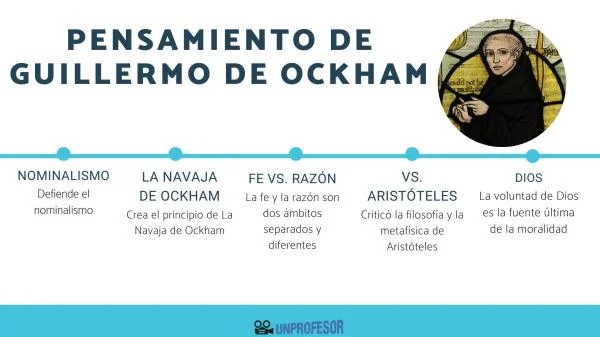
1. What Is Nominalismo?
When people search for “nominalismo con ejemplos para dummies”, they’re usually looking for an easy explanation of a very old but important philosophical concept. Nominalismo, or nominalism in English, is the belief that universal concepts don’t exist independently—only individual things do.
For example, when we use the word “tree”, we aren’t talking about a real, universal “Tree” that exists somewhere in a higher realm. Instead, we’re simply using a name to group similar individual objects we call trees. The term nominalismo comes from the Latin nomen, meaning “name.”
So, in simple words, nominalismo says that only particular, concrete things exist, and words or categories are human inventions that help us describe the world—not reflections of a higher or universal reality.
2. Historical Background of Nominalismo
To understand nominalismo con ejemplos para dummies, we have to travel back to the Middle Ages, when philosophers debated whether universals—like beauty, justice, or humanity—exist independently of individual things.
Two main positions emerged:
-
Realism: Universals are real; they exist beyond our minds.
-
Nominalism: Universals don’t exist outside of language or thought.
Key Philosophers
-
Roscelin of Compiègne (11th century) – often called the father of nominalism, he argued that universals are just empty words.
-
William of Ockham (1287–1347) – the most famous nominalist, known for Ockham’s Razor, a principle suggesting we shouldn’t assume more entities than necessary. He said it’s unnecessary to believe in universals when language already does the job of categorizing things.
Nominalism paved the way for modern science, emphasizing observation, individual facts, and simplicity over abstract theories.
3. Nominalismo vs. Realism and Conceptualism
To make nominalismo con ejemplos para dummies clear, it helps to compare it with other viewpoints.
| Philosophy | What It Believes | Simple Example |
|---|---|---|
| Realism | Universals (like “redness”) are real entities. | “Red” exists as a true property shared by all red things. |
| Conceptualism | Universals exist, but only in our minds. | “Red” is a mental category, not a real substance. |
| Nominalism | Only individual objects exist; universals are names. | There is no real “redness”—we just label things that look similar. |
So, in nominalismo, universals like beauty, truth, or goodness are not actual realities. They are human-made words that help us communicate about groups of individual experiences.
4. Nominalismo con ejemplos para dummies (Real-Life Illustrations)
This section brings nominalismo con ejemplos para dummies to life through everyday scenarios that anyone can understand.
Example 1: Animals
When we say “cat,” we think of an animal type. But according to nominalismo, there’s no real, universal “catness.” Each cat—like Luna or Max—is just an individual. The word “cat” is a label we invented to describe animals with similar features.
Example 2: Colors
We talk about “redness” as if it’s a shared property. But a nominalist says “redness” isn’t a thing; it’s a name we give to things that reflect a certain wavelength of light. There’s no independent entity called “redness.”
Example 3: Morality
We often speak of “good” and “evil” as universal truths. Yet for nominalists, these are social constructions. “Good” is not a real essence—it’s a word societies use to describe what they approve of.
In short, nominalismo con ejemplos para dummies teaches that language shapes reality, and universals exist only because we name them—not because they exist on their own.
5. The Importance of Nominalismo in Modern Thought
Why does nominalismo con ejemplos para dummies still matter today? Because this way of thinking shaped the modern scientific method, linguistics, and philosophy of knowledge.
-
In Science: Nominalism inspired a focus on individual observations rather than abstract “essences.” Scientists study measurable facts—not invisible universals.
-
In Language: Linguists realized that words are symbols, not reflections of universal truths. Meaning comes from use, not nature.
-
In Ethics: Nominalism encourages moral flexibility. Instead of believing in absolute “goodness,” it accepts that moral concepts vary across cultures and time periods.
This is why nominalismo is often seen as the root of modern empiricism and skepticism—ideas that prioritize evidence over belief in hidden realities.
6. Criticisms and Current Relevance
Even though nominalismo con ejemplos para dummies makes philosophy simpler, not everyone agrees with it. Critics say it goes too far in denying universals, which can create confusion about logic, morality, and shared values.
Common Criticisms
-
Realists argue that if universals are only words, then communication and logic fall apart—since we rely on shared meanings.
-
Moral Philosophers worry nominalism can lead to relativism, where nothing is objectively right or wrong.
-
Scientists note that certain universal laws—like gravity or physics constants—seem to exist independently of human naming.
Despite criticism, nominalism remains influential in modern philosophy, psychology, and linguistics. It reminds us that human understanding is limited and language-driven, encouraging humility in how we interpret reality.
Final Thoughts
To wrap up, nominalismo con ejemplos para dummies shows that words, not universals, give structure to our world. It’s an empowering philosophy because it emphasizes human creativity and language over abstract metaphysics.
By understanding nominalismo, we learn to see names as tools, not as truths carved into the universe. Whether in science, ethics, or everyday talk, it teaches us to stay curious, flexible, and open-minded about how we define reality.
